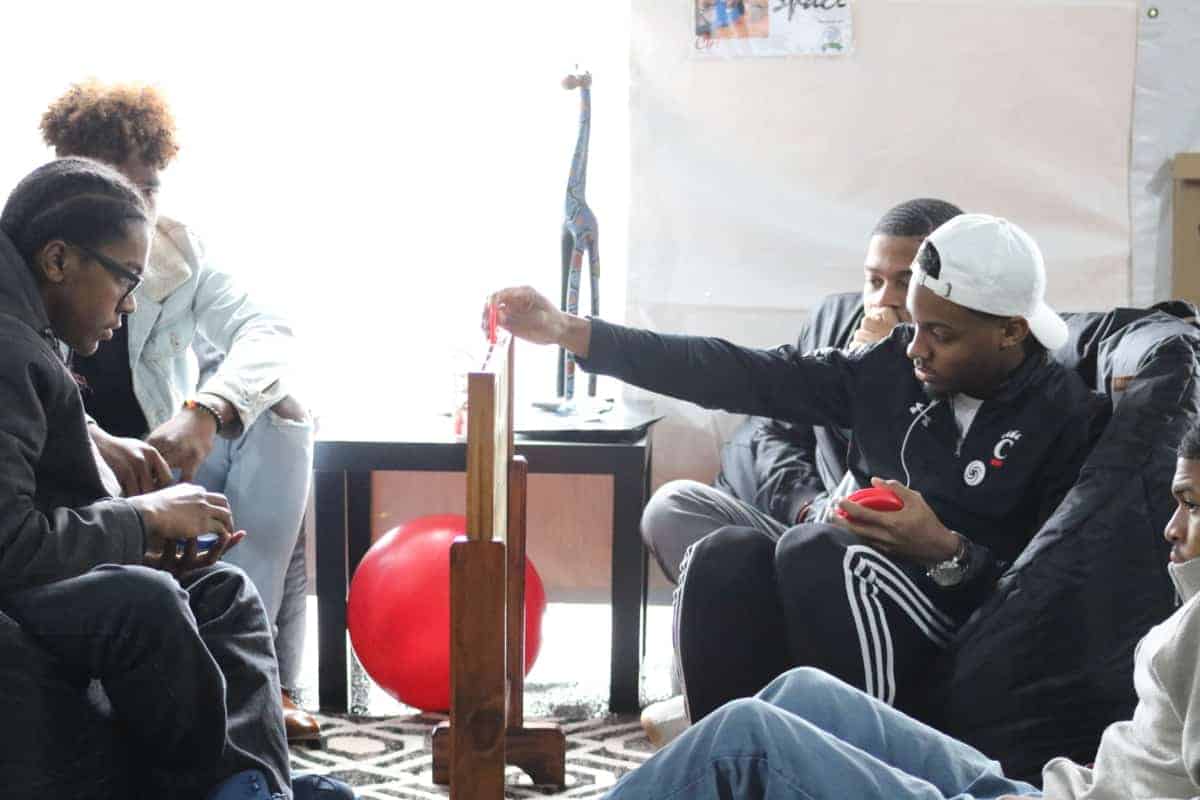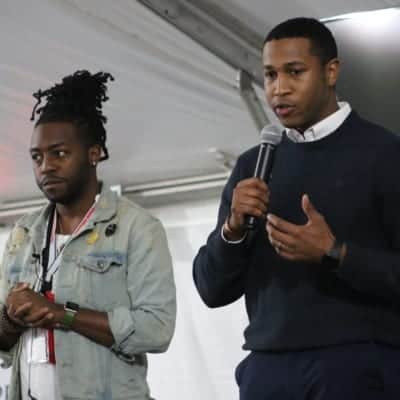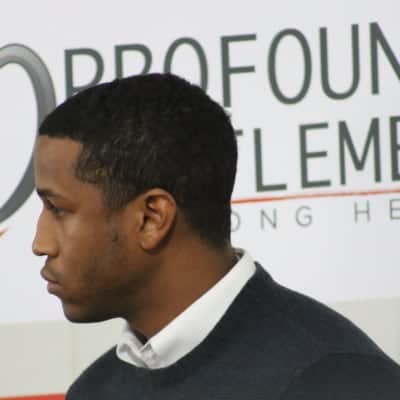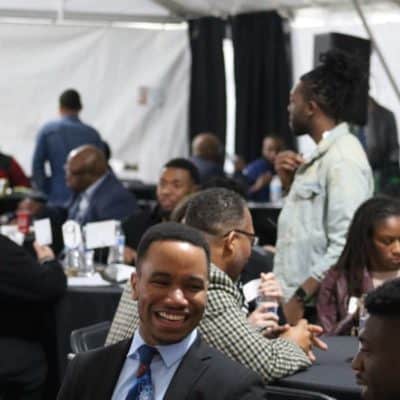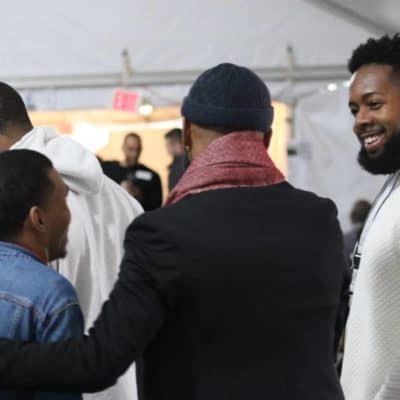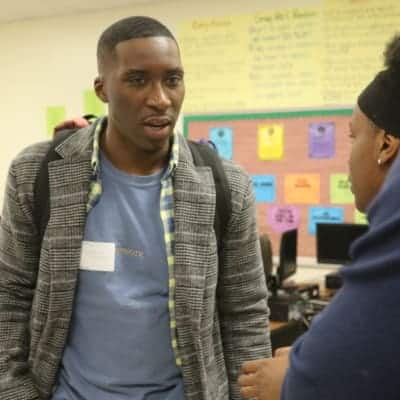For Skip Brown, who has taught elementary school in Durham for over 20 years, his role as a black male teacher is one he knows has been influential for many of his male students of color.
“I make those special relationships with all my kids,” Brown said. “The relationship they have back with you may be a little deeper for those boys of color.”
Sitting at the Profound Gentlemen conference last weekend that brought male educators of color from 18 states to Charlotte, Brown said being the only black male educator in his school comes with challenges and can feel isolating. In his current school, he is the only black male educator, though that was different in the past. His black male colleagues, Brown said, have gone on to administrative roles.
“It can sometimes be a little lonely in the building when you’re the only one like you in the building,” he said. “And how are you perceived in your building? Are you the disciplinarian so they’re going to send you all the students that have discipline issues? That’s not fair. Everybody needs to learn how to deal with those issues. Or when you speak up in faculty meetings, are you automatically dismissed, or do they listen to what you have to say?”
Profound Gentlemen, an organization that focuses on supporting male educators of color professionally and personally, held its fourth annual Community Impact Assembly for more than 200 teachers from cohorts in cities around the country. The cohorts of teachers form social networks and provide professional development opportunities in hopes of retaining male educators of color. Nationwide, black men make up only 2 percent of the teaching workforce. In North Carolina, 80 percent of the teaching force is comprised of white females. WRAL outlined the gap between teacher diversity and student diversity across the state in January. North Carolina’s student population is 52 percent students of color.
Researchers say the impact of having a teacher who looks like you can lead to better learning outcomes and can increase the chance of high school graduation.
“That’s mind-boggling. Just your presence alone,” Brown said of that impact. Jason Terrell, co-founder and executive director of the organization, calls this impact “profound,” which is how they thought of the name of the organization. Terrell said the weekend was comprised of the same things that happen on much smaller scales day-to-day across the country.
“The biggest thing of this experience is, this is kind of like a combination of all our programs wrapped in one, so we do smaller versions of these throughout the year in our respective cities,” Terrell said. “But this is a time when everybody comes together to a large one. And I think that’s the biggest part, is that building community piece. I think a lot of educators experience feeling that sense of isolation and not feeling like they have a larger community or network of support.”
Parts of the weekend were not solely for educators, but individuals from different parts of the community.
“It’s not just for teachers. It’s really for the community,” Terrell said. “We allow students to come. We invite teachers to bring their students if they can. … We also had two particular events that we allowed community members to come.”
On Friday, attendees broke into groups comprised of individuals from different sectors — politics, philanthropy, education — and an educator shared a particular challenge he was facing. The break-out groups listened, asked clarifying questions, then gave advice from their own backgrounds and experiences.
“Teaching, sometimes, is an isolated field,” Terrell said. “You’re just in your own silo and you don’t really have the chance to hear the perspectives of non-teachers. So that was a great way for educators to get perspectives from lawyers and doctors and accountants. Folks who have kids, folks who may not have kids, but just maybe have other ideas about how education works from their own contexts.”
In one group, Shaquise Elie, a high school social studies teacher in Brooklyn, New York, shared his struggle of feeling an additional burden at school besides teaching — educating his white colleagues on issues of race and culture.
“I feel like black teachers constantly do the heavy lifting,” Elie said. “We’re double-burdened with the responsibilities of our jobs and teaching our peers on everything from instruction to culture. How do I practice self-care so that I’m not overburdened?”
He went on to explain what he means by “heavy lifting:”
“Black teachers often times don’t have the ability to sort of tap out of things that relate to culture and sort of stresses that the kids get, may it be micro-aggressions that come from teachers, and letting white teachers know that some of the things that they’re doing is harmful, which is not particularly in our job descriptions, but when we want to protect our kids and we want our kids to feel safe in our school communities, we have to let them know the things that they’re doing.”
Elie said students and staff from his school were planning a school-wide conversation about race due to black students not feeling they had a voice in a majority-LatinX school population. He had multiple white teachers ask him how to facilitate that conversation. Meetings to plan for the conversation were opt-in, and, Elie said, he felt those teachers who were already prepared to have racial conversations were the ones who chose to attend.
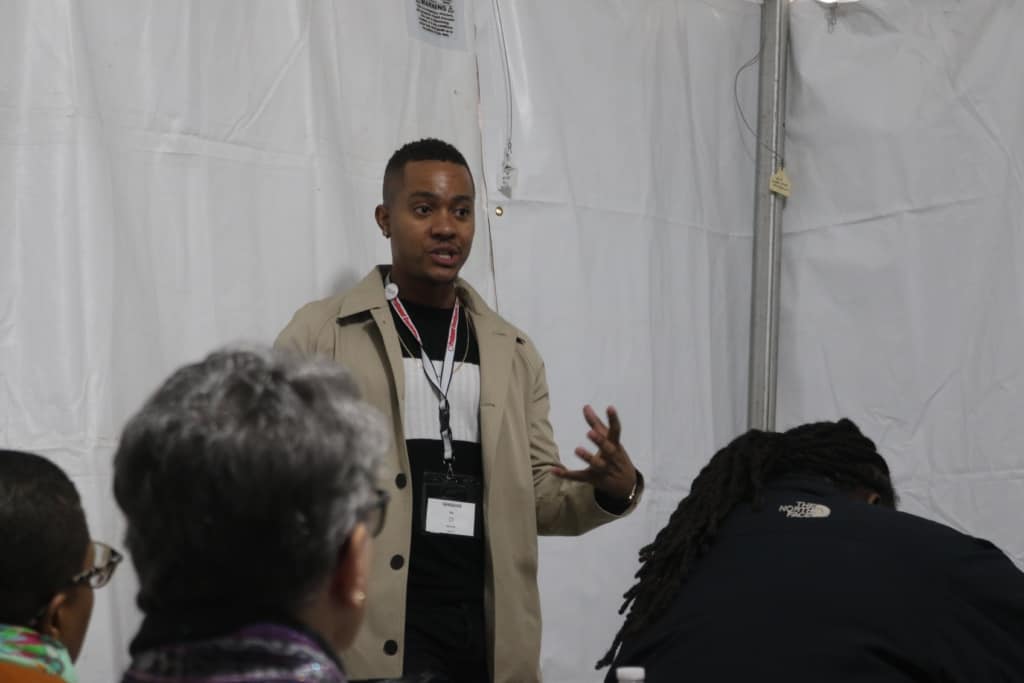

“It’s almost like you’re having to be the spokesperson for your black students because the school is not stepping up and taking on that charge,” said Charles King, a middle school English teacher in Atlanta and Profound Gentlemen cohort leader. “And I think that spans wherever we are.”
Individuals in the room from educators to philanthropists to racial equity consultants gave varying opinions and advice. Dawaine Cosey, director of culture, empowerment, and restorative justice at Ron Brown College Preparatory High in Washington, D.C., said he feels, as educators of color, it is inevitable to have a connection to students of color.
“We become their safe place,” Cosey said. “We become the uncle or the dad. It feels heavy because it is heavy. That is the reality of the work being black in nonblack spaces.”
Cosey said he feels white educators, especially those who feel unprepared or uncomfortable talking about race, should listen instead of lead.
“I don’t think conversations of race should be led by people who are not persons of color particularly because you don’t get it,” said Cosey.
A consultant on diversity and racial equity advised Elie to respond to his white colleagues with questions that help them think critically about the roles of race in school and beyond. A fellow black male educator and member of a Profound Gentlemen cohort emphasized the importance of taking time off and doing things for yourself from time to time to avoid burnout.
Teacher Advisor to Gov. Roy Cooper LaTanya Pattillo said she has felt the same expectation to have all the answers in situations that are majority white, whether it be a classroom or a board meeting.
“The other side of it is, and people ask me, ‘If not you, who?'” Pattillo said. She recommended being honest about feelings but also recognizing the opportunity to help others understand.
“They’re coming to you, which can be looked at a variety of ways, but they’re coming to you, which presents you with an opportunity to educate,” she said. “Whether or not you want to take that on depends on the day, how you feel, all of that, right? But understand that there is purpose in that, and there is opportunity in that. I think what could be really helpful is to recognize those relationships during the course of the day and cultivate those relationships so that when there’s not an issue, you’re building this and if something comes up you can address it, and address it in a way that’s not antagonistic or that people might not feel defensive about.”
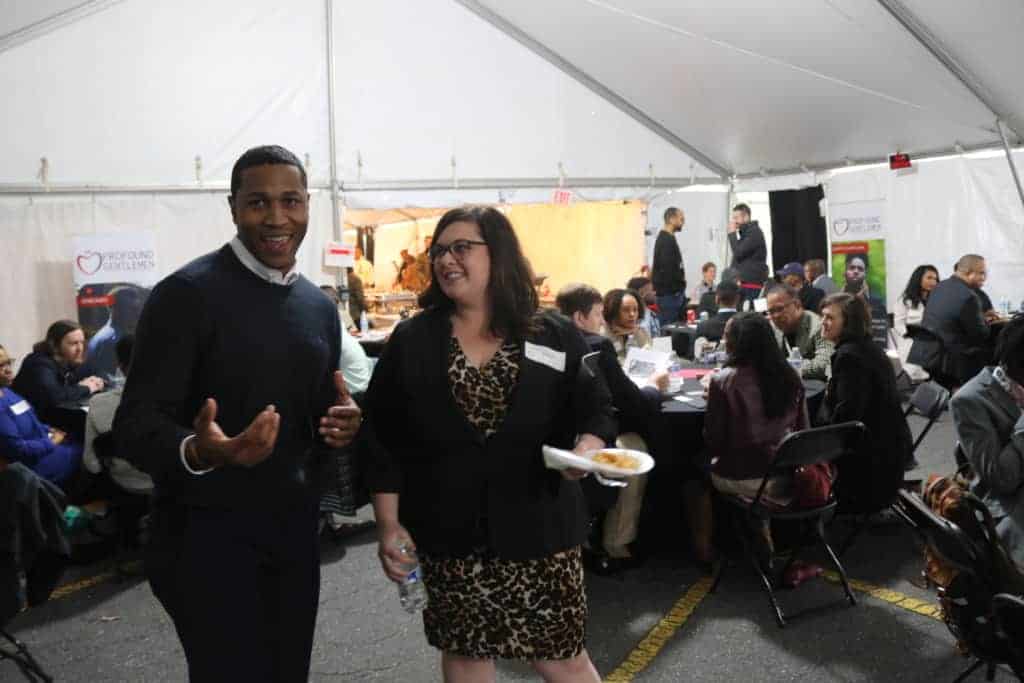

De-Mi Woodfork, a behavior specialist in an elementary school in Memphis, Tennessee, is part of a Profound Gentlemen cohort in Memphis. He said the social network and professional development has given him more confidence to put his ideas out there. He said he came to Charlotte over the weekend to meet other male educators of color who have similar challenges.
“What brought me to this conference is, one, being able to congregate with people who are like you, who are struggling the same struggles, or fighting the same battles, rather, that you’re fighting,” said Woodfork. “And in the classroom, in the schools, you don’t see too many who look like you and who can support you in the challenges you are facing.”
Woodfork said, as a behavior specialist, his discipline approaches can be seen as hostile in a majority-white school environment, but, in the school he is in now, which has a good deal of diversity, there is an understanding and gratitude for his approaches. Woodfork, who used to be in the military, said he uses JROTC values to provide children who are consistently acting out with the structure and tools they need.
Groups of educators went on school visits around Charlotte as part of the conference. Woodfork said he enjoyed the opportunity to see new ideas to take back to his school.
“So being able to come around other men who are implementing different ways of helping the kids… it’s a learning experience,” he said. “It’s a world-changing experience. Because I can go back home and say, ‘Hey, we’re going to do this this way because they tried this here and it was very successful.’ So to be able to learn from everybody as well, not just come together [in] fellowship, but to learn from each other is one of the things that brought me here.”
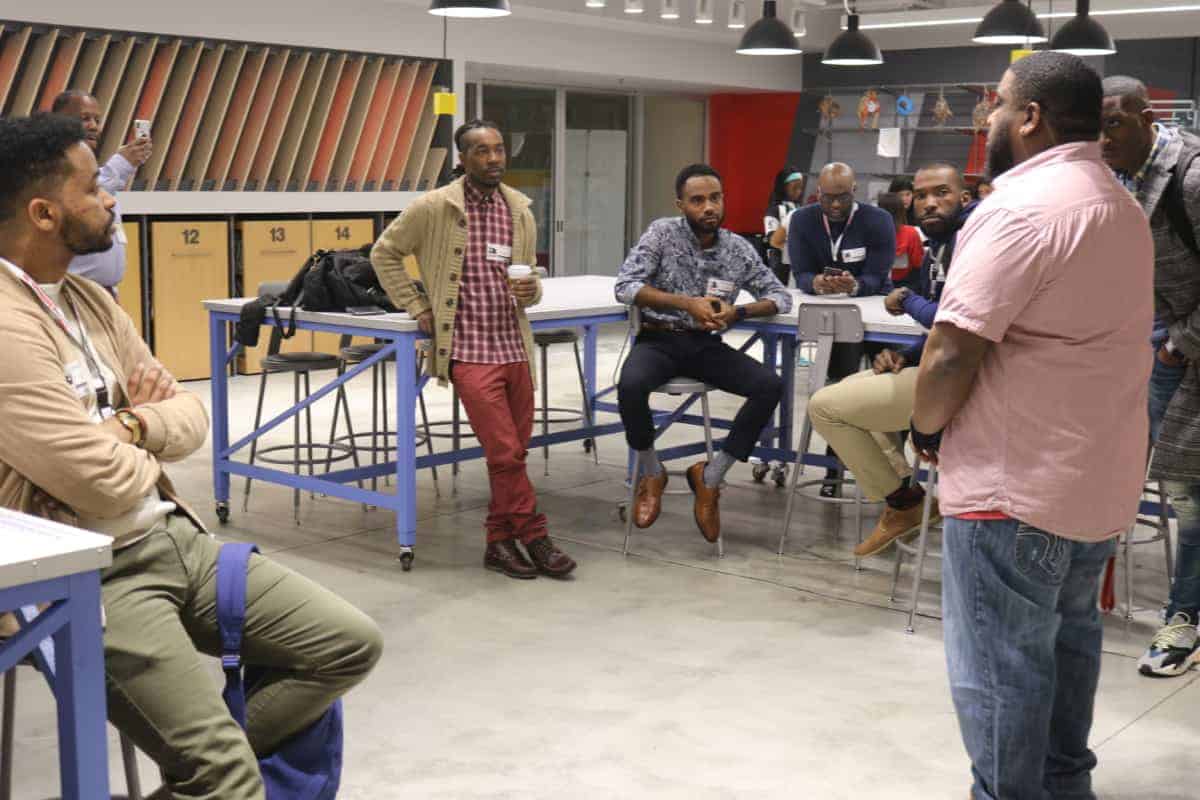

Profound Gentlemen’s ultimate goal is retention of male educators of color once they are already in the profession. This year, they are testing out a new model, which is reaching undergraduate students before they join the profession. Through partnerships with UNC-Charlotte, Winston-Salem State, and Johnson C. Smith University, Terrell said college cohorts have formed with around 30 students, some of whom are majoring in education and some who are not.
“Our goal is to get these guys exposed to what education looks like,” Terrell said. “Most of them never had a teacher who looked like them before so they don’t really see themselves in the classroom.”
Also on the horizon for the organization, Terrell said, is expanding to reach more men of color across the state, especially in rural areas.
Brown, the Durham third grade teacher, said he feels this kind of network can help keep male educators of color in the teaching profession, especially those just starting out their teaching careers. Recruitment of male educators of color, he said, is a different story.
“Attracting more men toward the profession will take a fundamental change nationwide,” Brown said. “It is very difficult for any student, any person, to have an apartment, to have a decent car, and to manage student loans. You can’t do all three. You can only do two of those. So it’s going to have to start off with increased pay.”
